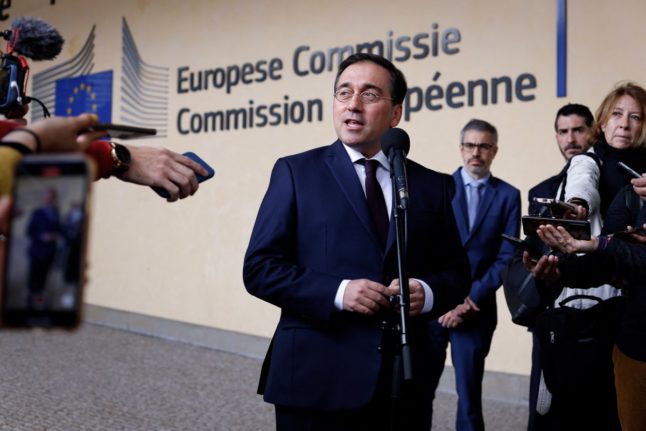On Tuesday January 16th, Catalan right-wing nationalist party Junts per Catalunya (JxCat) presented in parliament 12 amendments to the amnesty law they want the Spanish government to agree to, as further evidence of the separatist party’s apparent grip on Sánchez’s fragile coalition.
In essence, Junts aims to shield the controversial legislation against foreseeable appeals of unconstitutionality, speed up its entry into force and expand the ‘actions’ that are protected by the amnesty.
This comes after months of political turmoil and nationwide protests against a deal struck by Sánchez with Catalan separatists which will legally protect them from criminal convictions after leading a failed independence bid for the region in 2017.
It is widely believed on all sides of the political spectrum that the newly re-elected PM offered this amnesty in return for Junts and ERC’s support, with which Sánchez could gain an absolute majority and be re-elected after a deadlocked general election.
READ ALSO: What’s in store for Spanish politics in 2024?
The Republican Left of Catalonia party (ERC), the other main pro-Catalan independence party, also presented a proposal with the same amendments.
Most noticeable of all is their request that “crimes classified as acts of terrorism that are punishable according to Spain’s Criminal Code” be covered by the amnesty.
In November 2023, a Spanish High Court judge began investigating Junts’ leader Carles Puigdemont for his involvement with Catalan independence protest group Tsunami Democràtic, whose members are facing terrorism charges, which in turn explains the proposed amendment.
In fact, Junts have said that such changes would be “entirely convenient” for them given the “the improper use of the Criminal Code and the instruments of the State used to persecute Catalan separatists”.
Along with Puigdemont, ERC’s Secretary General Marta Rovira is also facing terrorism charges, accusations both have vehemently denied.
Tsunami Democràtic has organised protests through Telegram for its 400,000+ followers, its most notable ones being a demo at Barcelona’s El Prat airport in 2019 which caused over 100 flight cancellations and other mass protests in the Catalan capital following the conviction of 9 politicians involved in the attempted independence bid.
El País’s journalist Manuel Cancio Meliá has argued their actions may constitute a crime for civil disorder, but that they would be “considered terrorism in Moscow, Istanbul or Tehran, not in Berlin, Paris or Bern”.
READ ALSO:
- Lawmakers in Spain begin debating divisive amnesty bill
- ‘It’ll heal wounds’: Spain’s PM defends Catalan amnesty
Spain’s Socialists have stressed that any inclusion of an amnesty from acts of terrorism would be applicable only to those involved in the Catalan independence process.
Junts are also demanding that the amnesty law extend its time frame until November 2nd 2011, as a means of ensuring that those involved in el procès (the Catalan independence bid) years before the unofficial 2017 vote are also shielded by the amnesty.
Furthermore, Junts wants to shelter the amnesty law from presumed unconstitutionality appeals or prejudicial issues which could be applicable under European law, as well as scrap “civil and accounting liabilities” in cases that are prosecuted in the Court of Auditors.
If PSOE and Junts agree on these final amendments, they will still need the green light from ERC, EH Bildu and BNG in Spain’s Parliament for the amnesty bill to pass.
READ ALSO: Is Catalonia slowly becoming independent on the sly?



 Please whitelist us to continue reading.
Please whitelist us to continue reading.
Member comments